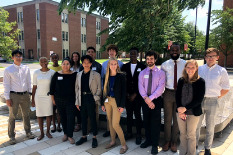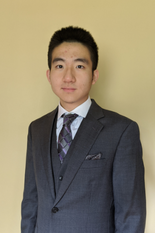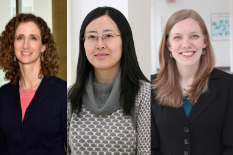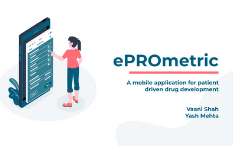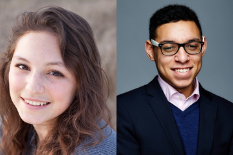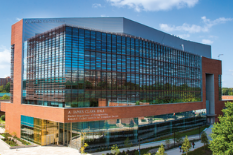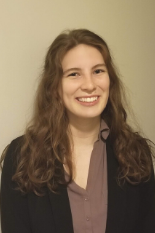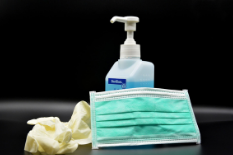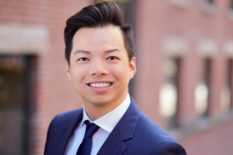News Story
BIOE Celebrates Second REU Class
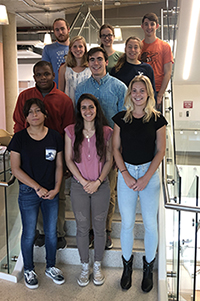
Ten students took part in this year's Fischell Department of Bioengineering REU program.
The Fischell Department of Bioengineering (BIOE) celebrated the second year of its Research Experience for Undergraduates (REU) program this summer.
REU programs are designed to provide undergraduate students with hands-on laboratory experience and are supported by the National Science Foundation.
The BIOE REU program spans 10 weeks each summer, and provides participants from across the country with room and board in College Park and a $5,000 stipend. Featured research projects promote collaborations between the University of Maryland and the U.S. Food and Drug Administration (FDA), making the BIOE REU program unlike any other in the country. At the end of the summer, BIOE REU students take part in the FDA’s annual research fair, where they have the opportunity to present their work to other undergraduate researchers as well as FDA technical staff, non-FDA scientists, and even the FDA Commissioner.
The BIOE REU program aims to provide students with opportunities to apply their knowledge of regulatory science while analyzing the clinical and commercial implications of their research projects. The program also prepares students for success in graduate school by improving their research aptitude, laboratory skills, and communication skills.
This year, 10 undergraduate students participated in the program, through which they investigated new engineering technologies for constructing and mimicking tissues and organs.
Juliana Pitzer – a rising junior who recently transferred to the University of Maryland after earning her associate's degree in engineering from Harford Community College – spent the summer working with E. coli in Dr. William Bentley’s lab. Juliana investigated how to control the gene expression and cell behavior in E.coli using electrical currents.
“I think the most enjoyable part of working in a lab as an REU student is that you can be creative with it,” Pitzer said. “I enjoy the fact that, even if something goes wrong, you can create your next experiment based off of that. Even if [your initial experiment] didn’t work, you can kind of learn from that and do what you want afterwards and keep going with it.”
Flexibility and hands-on learning opportunities are granted to REU students, including those who may have little or no prior experience in bioengineering research.
REU student Alexander Pessell, a rising junior at Trine University, spent the summer working in Dr. Gregg Duncan’s lab, where he worked on developing mucin-based hydrogels. These hydrogels are designed to mimic the mucus found in the respiratory tracts of pulmonary disease patients – particularly those with chronic obstructive pulmonary disease (COPD), asthma, or cystic fibrosis.
“What I enjoy most about working in the lab is working with different people who come from different backgrounds,” Pessell said. “Interacting with different people – and the exchange of ideas, learning how other people think – I think it prepares me for my future."
Madelyn Hurtwitz, a rising junior at Williams College, worked in Dr. Kimberly Stroka’s lab. The group’s research is focused on understanding the interplay between mechanical and biochemical cues from the cellular microenvironment on cellular behavior during normal homeostasis, progression of diseases, and therapeutic treatments.
Over the summer, Hurwitz learned how to use ImageJ - a Java-based image processing program developed at the National Institutes of Health - to analyze the migration behaviors of brain-seeking and bone-seeking metastatic breast tumor cells. This understanding will help researchers predict the non-random patterns of breast cancer metastasis to other organs.
“I really like working in bioengineering, at the intersection of more basic science disciplines,” Hurwitz explained. “The REU program allowed me to delve very deeply into this hot area of scientific research. It’s been really fascinating.”
More information about the Fischell Department of Bioengineering’s REU program is available online.
Published August 20, 2019
